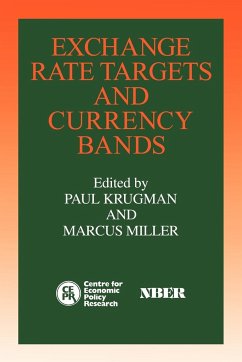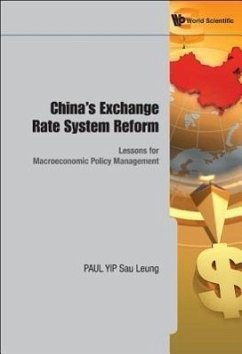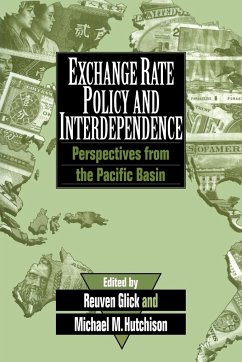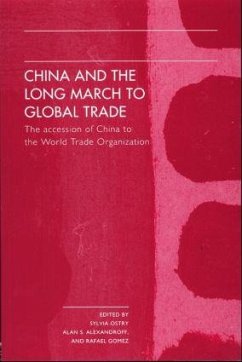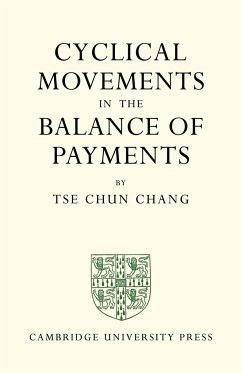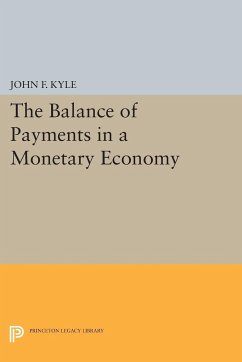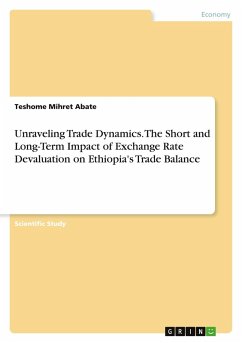
Unraveling Trade Dynamics. The Short and Long-Term Impact of Exchange Rate Devaluation on Ethiopia's Trade Balance
Versandkostenfrei!
Versandfertig in 1-2 Wochen
19,95 €
inkl. MwSt.

PAYBACK Punkte
0 °P sammeln!
Scientific Study from the year 2023 in the subject Economics - International Economic Relations, , course: Department of Economics, language: English, abstract: Scholars continue to argue passionately about how exchange rate devaluation affects trade balance in developed and developing nations, despite the fact that numerous theoretical and empirical research have looked at this link. This research explores the effect of exchange rate devaluation on Ethiopia's trade balance. Utilizing annual time series data collected from the National Bank of Ethiopia; from 1984 to 2018 the study employs desc...
Scientific Study from the year 2023 in the subject Economics - International Economic Relations, , course: Department of Economics, language: English, abstract: Scholars continue to argue passionately about how exchange rate devaluation affects trade balance in developed and developing nations, despite the fact that numerous theoretical and empirical research have looked at this link. This research explores the effect of exchange rate devaluation on Ethiopia's trade balance. Utilizing annual time series data collected from the National Bank of Ethiopia; from 1984 to 2018 the study employs descriptive and econometric methods for analysis. In the econometric analysis, the Autoregressive Distributed Lag model (ARDL) is utilized, incorporating variables such as trade openness, real GDP, money supply, inflation rate, and real effective exchange rate index. The results indicate a stable cointegration relationship between trade balance and its determinants. Trade openness emerges as the most influential factor, affecting both short and long-term trade balance. Real effective exchange rate devaluation is found to have a positive significant effect on trade balance in the short term, but showing a deteriorating effect in long term. The study challenges Marshall-Learner condition, revealing that devaluation strategy employed by Ethiopia does not align with condition for improving trade balance. While devaluation has positive short-term effects, it is insufficient for long-term correction of trade deficits. The research suggests that policies focusing on internal supply-side factors, encouraging production of exportable and substitute goods, are crucial for sustained improvement in trade balance. In conclusion, the research sheds light on the complexities of trade balance dynamics in Ethiopia, highlighting the multifaceted nature of factors influencing the effectiveness of exchange rate devaluation as a policy tool.





